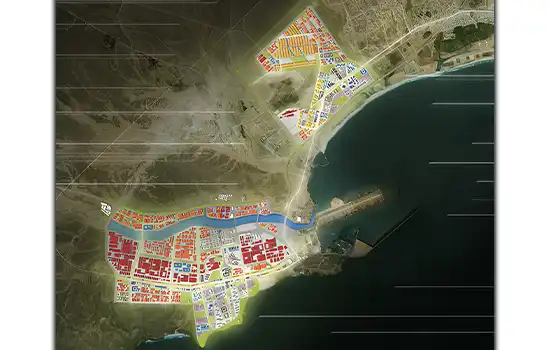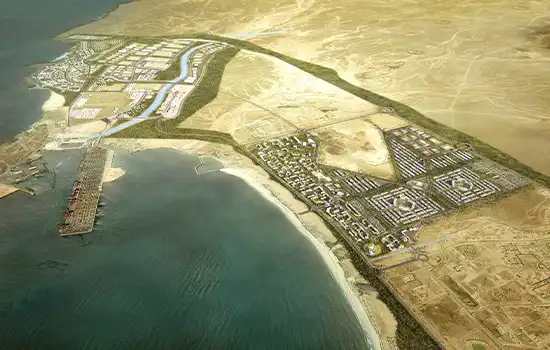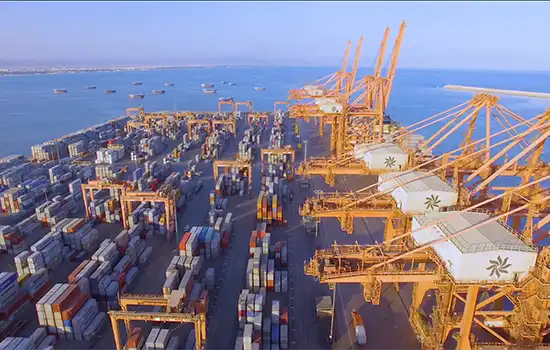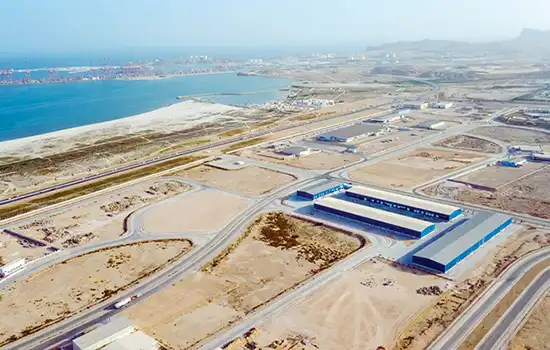The Government of Oman extends a call and robustly encourages foreign investors to collaborate with the Salalah Free Zone in its economic development journey for the benefit of all stakeholders. Investors can avail themselves of improved market access at competitive costs, while the success of the Salalah Free Zone is intrinsically tied to the success of the Omani Government in creating a diversified and sustainable economy with ample job opportunities.
Established through a royal decree, the Salalah Free Zone aims to be a global leader in owning, developing, and operating a state-of-the-art hub for quality industrial and logistical activities. The primary focus is on collaborating with tenants to facilitate the growth of their businesses.
The creation of Free Zones in Oman is authorized by Royal Decree 56/2002, and the Salalah Free Zone specifically came into existence in 2006 through Royal Decree No. 62/2006. Spanning 1848.19 hectares in two major plots near the port, divided between Raysut and Adhan, the government of Oman has leased the land to the Salalah Free Zone Company for 50 years, effective from March 2007.
Salalah Free Zone Company SAOC is the exclusive operator of the Free Zone in Salalah and is 100% owned by the government.
Salalah Robust Master Plan

The Salalah Free Zone Company has formulated both a master plan and a technical master plan following its development strategy. This plan encompasses the requirements outlined in the business plan and emphasizes the phased development of the free zone, aligning with the overall cluster development projection. Additionally, the master plan considers the integration and impact of SFZ beyond the free zone boundaries, influenced by the economic success of the zone. The SFZ master plan divides the land into two primary areas, namely Adhan and Raysut:
Plot 1
Plot 1 to the south is designated for light industries and services. The intersection of these plots is envisioned as a linear Green Park, featuring a central water channel and strategically located logistics offices. The urban design involves dividing the area into rectangular blocks with an orthogonal grid of approximately 350 m. Each 700×700 m block (50 ha each) includes a centrally located amenity area.
Plot 2
The western half of the Raysut site (Plot 2), situated south of the Wadi, has been identified as the optimal location for the Chemical and Material Processing Cluster, as well as Manufacturing and Assembly activities. This excludes the area immediately west of the existing Octal/Methanol plants, reserved for logistics businesses due to its proximity and direct access to the port, along with a sizable workers’ housing block. The region between the north of the Wadi and the Sultan Qaboos Road is allocated for medium and light industries, considering the narrow depth of this strip.
Investment in the Salalah Free Zone Master Plan

The Salalah Free Zone stands out as a location with competitive market access and affordability in a business-oriented country. It caters to business owners and multinational companies seeking expansion into the Middle East, Africa, Southern Europe, and South Asia.
Strategic Location
The first advantage of Salalah Free Zone is its strategic location. Salalah is located in the south of Oman and provides direct access to countries that are major exporters of raw materials for manufacturers who are willing to relocate to this region.
Economic Efficiency
The second advantage of Salalah Free Zone is that it is one of the most affordable environments in the region in terms of labor, supplies, and infrastructure, along with proximity to raw materials sources, which will bring competitive conversion costs for manufacturers.
Its regulatory environment also guarantees compliance with international standards, intellectual property, 100% foreign ownership, tax exemptions, and the right of return on investment for investors.
Tax exemptions
The third advantage of the Salalah Free Zone is its tax exemptions. Companies operating in the Salalah Free Zone are exempt from income tax for up to 30 years. This can help to improve the profitability of companies.
SFZ becomes more appealing when considering its access to Free Trade Agreements (FTA) and trade routes, with the US-Oman FTA offering significant duty exemptions, especially for companies generating at least 35% of their value in Oman.
This is particularly attractive in sectors like textiles, electronics, and other consumer goods traditionally exported from Asia to the US.
Large regional market
The fourth advantage of the Salalah Free Zone is its large regional market. Salalah is the central hub of the East African, Gulf Cooperation Council and Indian subcontinent markets. This allows companies to access large and diverse markets.
In addition, the region has a convincing regional market as the central hub of the East African, Gulf Cooperation Council and Indian subcontinent markets, with annual imports of $620 billion. With its location between the east-west trade routes, Salalah has a more affordable shipping cost and shorter delivery time than China, the United States, India and other regional competitors.
Strategic connections
The fifth advantage of the Salalah Free Zone is its strategic connections. Salalah has strategic connections through the Salalah Port, the international airport, the highway network to the markets of the Gulf Cooperation Council countries and the railway that will connect the Gulf Cooperation Council countries in the future. This allows companies to access global markets efficiently.
Salalah Port is a major transshipment hub, second only to Dubai in size, and the largest in the Indian Ocean, with three of the world’s largest shipping lines offering regular weekly connections to global hubs.
As a result, import and export shipping times are on average 30% to 40% lower than other competing locations, such as 15 days to New York, 12 days to England, and 8 days to Singapore.
Investment Incentives

Investors have the flexibility to attain full ownership (up to 100%) without any income tax obligations, and there are no minimum capital requirements when establishing a company or representative office in the Free Zone.
Full ownership and no restrictions on capital repatriation
Importantly, there are no restrictions on capital repatriation, facilitating seamless collaboration with international partners and subsidiaries. Additionally, the Free Zone offers export guarantee insurance. Investors benefit from full tax exemptions and can avail themselves of State Funding at competitive rates tailored for SMEs. Furthermore, they have access to commercial loans, providing comprehensive support for their endeavors.
Full tax exemption and financial support for small and medium-sized businesses
Investors benefit from full tax exemption and can access government funding at competitive rates that are appropriate for small and medium-sized businesses.

In addition, investors have access to commercial loans that provide them with full support in their commercial activities.
Key Sectors Salalah Free Zone

The Salalah Free Zone’s strategy revolves around prioritizing export-oriented activities.
Chemical and Material Processing
Oman possesses abundant natural resources, including oil, gas, and various non-fuel minerals such as manganese, chromite, copper, silica, marble, attapulgite, dolomite, gypsum, and limestone. These resources have diverse applications, especially in the growing economies of the East.
The country can capitalize on its resources, including Caustic Soda, Chlorine, Ethylene, Propylene, and Methanol, to produce significant derivatives like PVC, LDPE, LLDPE, HDPE, Polyester, PET, and Adhesives. Petrochemical development opportunities in Oman extend to utilizing Propylene, Butadiene, Benzene, and Xylenes for the production of Acrylic Fibers, ABS, Paint and Coatings, Polypropylene, Polyurethane, Rubbers, Nylon, and Polycarbonates.
The Free Zone offers a platform for foreign investors to establish chemical and material processing facilities, enabling the beneficiation of locally sourced or Gulf market materials for global shipment to end-user markets. This includes opportunities in metal casting, such as iron, zinc, and steel.
Manufacturing and Assembly
The Manufacturing and Assembly cluster encompasses both capital-intensive processes and labor-intensive assembly tasks, involving the production of equipment like machinery, electronics, transportation vehicles, and medical apparatus. Additionally, it may involve the assembly of consumer goods such as furniture, food products, pharmaceuticals, and cosmetics, extending its scope to various industries, including energy, alternative energy turbines, tools, garments, and textiles.
Logistics and Distribution
The Logistics and Distribution cluster encompasses all intermodal global logistics operations involving processed materials and manufactured goods within the Salalah Free Zone. This also involves the storage and handling of goods in the Salalah Free Zone before re-export. Additionally, it includes logistics Maintenance, Repair, and Overhaul (MRO) as well as general distribution activities, primarily serving the Indian Ocean region.
Investment Services in the Salalah Free Zone

The primary emphasis of the Salalah Free Zone is on providing essential services to facilitate the commencement of tenants’ operations and address any subsequent needs that may arise.
One-Stop-Shop
The government has recently implemented the One-Stop Shop (OSS), streamlining the process of company registration through online means. This expedites the entire business registration process, typically taking around three days.
From initial capital deposit at the bank to registration with the Ministry of Commerce and Industry (MOCI), notification to the Tax Department of the Finance Ministry, employee registration for social insurance, and the creation of a company seal, these procedures occur transparently, concurrently, and with simplicity, ensuring a fast and efficient process.
The One-Stop Shop also manages various formalities on behalf of investors, including visas, work permits, utility applications, construction permits, commercial licenses, and environmental permits, among others.
Licenses
Salalah Free Zone grants different types of licenses:
- A General Trading License enables the holder to import, export, distribute, and store all items under the rules and regulations of the Free Zone.
- A Trading License permits the holder to import, export, distribute, and store items specified on the license.
- An Industrial License allows the holder to import raw materials, engage in the manufacturing of specified products, and export the finished product to any country, subject to clearances from the respective ministries.
- A Service License authorizes the holder to provide the services specified in the license within the Free Zone. The type of service must align with the parent company’s license issued by the economic department or municipality of the relevant region.
Facilities
Tenants can lease office space, and business incubators are accessible at the new headquarters building, assisting start-ups in becoming operational and concentrating on business growth and development. Serviced land is also available for long-term leases at competitive rates for constructing facilities, and warehouses of various sizes are available for rent. Continuous development and maintenance of roads ensure that all plots in the free zone have the necessary connectivity.
Communities
Salalah has various warehouses and industrial spaces which offer a wide variety of services.
Logistics in the Salalah Free Zone

Salalah has various warehouses and industrial spaces which offer a wide variety of services.
Mazaya Warehouses:

Salalah Free Zone provides pre-constructed warehouses and Light Industrial Units designed for high-quality storage and light manufacturing. The Mazaya warehouses are purpose-built units with thermal insulation, offered on a rental basis, and equipped with office spaces.
Algarmani International Company LLC:
It provides a range of storage and logistic solutions across 95,000 square meters, enabling investors to coordinate and oversee their entire supply chain.
International Logistics Hub SFZ:
It offers secure, centrally located warehouse facilities in Raysut, Salalah, providing long-term storage solutions for companies.
Darvesh Investment and Logistics:
It provides top-tier warehousing facilities featuring the latest in design and engineering.
Conclusion
Salalah has proven itself by offering a wide range of investment incentives and focusing on infrastructures like ports, warehouses, and office buildings. It can be a haven for investors who have an eye on forming the shape of business and trade in the area.

